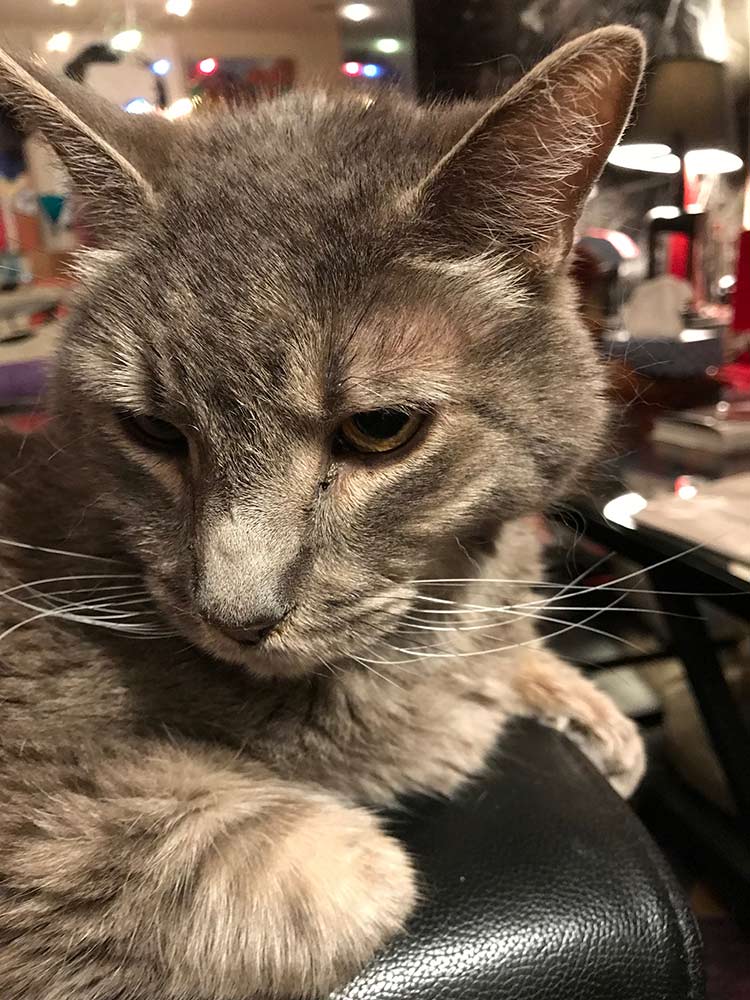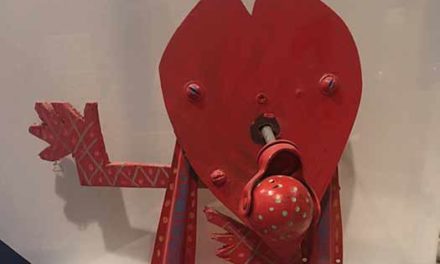Calling A Spay A Spay: Trouble In River City’s Animal Shelter
In the second of a two-part column, we discuss problems of the four-legged homeless in California’s capital
By Ed Goldman
On September 9, I sent the following email to Phillip Zimmerman, manager of Sacramento’s Front Street Animal Shelter:
“Dear Mr. Zimmerman,
“Having reviewed a great deal of material on the Front Street Shelter, which I’ve also visited over the years (I worked for the City of Sacramento for five years), I’d like to interview you about some allegedly questionable practices and outcomes (such as the shelter’s “live release” metrics, which are amazingly simple to fudge). I’m very interested in fairness…
“I write a thrice-weekly online column, The Goldman State, which has thousands of subscribers in 30 states (and climbing). Howard Chan is familiar with my work and I’m very fond of him: we go back to his days as the City’s traffic manager.
“I wrote a daily column for the Sacramento Business Journal for eight years, monthly columns for both Sacramento Magazine (10 years) and Comstock’s Magazine (15 years). and was a correspondent for the Los Angeles Times for a decade.
‘I’m available to interview you in person this coming Monday morning or any time Tuesday. My deadline to report on Front Street is looming and I hope you can accommodate me (even if it’s over this weekend).
“Thanking you in advance,
“Ed Goldman”
Zimmerman never replied. Tim Swanson, the City of Sacramento’s public information officer—the same job that brought me to the capital in 1976 (I was the second PIO in the city’s history)—had at first arranged, after several exchanges, to make Zimmerman available for an interview, provided Swanson was also present.
Then, a few days before it was scheduled, Swanson abruptly pulled the plug on it because he didn’t feel I should be friends with Julie Virga, the animal rights activist I had never met until she contacted me and asked me to write about Front Street.
Part of this was my error: asked if she were a friend of mine by Swanson in an email exchange I said no, thinking he meant a longtime ally of hers. That made him quote one of my July columns, about freeway traffic, in which I quoted Virga, a Realtor, and referred to her as my friend.
I wrote back to Swanson on October 31:
“Tim,
“I’m very surprised to read that you have supreme control over friendships.
“As the City’s second Public Information Officer in its history, I never thought of this as a way to evade the news media. Clever by half.
“As I wrote to you before, I never knew Julie Virga until she approached me with her concerns about how Front Street was being run. I referred to her as a friend in my column about traffic because I’ve grown to consider her one. I also consider your boss Howard Chan to be a friend. The key is that Howard, Phil and you are public officials whose salaries are paid by citizens like me.
“As I read Cathryn Rakich’s excellent story on Front Street it became increasingly clear there’s indeed a cover-up afoot.
“Sorry a fellow ex-LA Times guy is involved in it.
“Thanks for getting back to me and best wishes for your continued success. —Ed”
Cathryn Rakich, mentioned above, is a diligent reporter/editor for Inside Publications, a collection of monthly neighborhood-zoned newspapers which, despite their almost built-in boosterism, are well regarded by most working journalists. I’ve written about her work in animal foster care and she’s written about my career and devotion to the late Osborn the Magnificent, my tabby who died shortly after his 19th birthday.
Not long ago she wrote about the Front Street issue.
“Under Zimmerman’s approach,” she wrote in the November 2022 issue, “the fewer animals going into the shelter, the better.” She continues, a few paragraphs later, to mention that “(a) group of local animal advocates has launched a ‘Fix Front Street’ Facebook page to re-establish the city’s essential animal services. The group’s leaders want Front Street back to pre-Zimmerman days, exposing problems with the community sheltering mandate and the shelter’s appointment-only services, among other issues. ‘He’s not saving more (animals). He’s just not accepting more,’ says Elyze Mize with Fix Front Street and Sacramento Lost and Found Pets.”
Osborn the Magnificent. Photo by Edgy.
While the Front Street dramedy has led to endless correspondence and cries for Zimmerman’s figurative head. it also inspired a mile-long protest march on November 6. As the Sacramento News & Review reported:
“On November 6, a group of protestors descended on Sacramento’s Front Street Animal Shelter to condemn what they view as deteriorating animal care and services at the city-run facility.
“Critics argue that these problems have become especially pronounced since new management took over about three years ago. Prior to the demonstration, frustration had been building with dog and cat-lovers since the onset of the pandemic. Critics say that’s when Front Street started down a path of limiting how many animals it would take—and what kinds of animals it would accept —sparking confusion in the community and creating a lack of humane options for strays that are recovered.
When COVID restrictions were still in place, concerned citizens who closely follow Front Street also spoke with SN&R to decry the shelter for allegedly downplaying to the public how many animals it kills each year. During Sunday’s demonstration, shelter critic Elyse Mize told reporters that Front Street has euthanized 620 animals just since January.
Many of the demonstrators aimed their ire directly at Front Street Animal Care Services Manager Phillip Zimmerman, some carrying signs that read, ‘Dereliction of Duty: Zimmerman must go.’ Other signs had similar messages, including, ‘Fix Front Street: lazy, arrogant, apathetic.'” Those are three adjectives no public servant should be accused or guilty of.
In addition to Osborn the Magnificent, I’ve had exactly two pets in my life:
– Portia, a mongrel I yanked out of a traffic intersection in Long Beach in 1973 and whose owner (or abandoner) I could never find. I adopted her and she even consented to move to Sacramento with me in 1976;
– Camellia, another mutt, named by my daughter when she was not quite four years old (because she said, “Camellias are pretty”). I adopted her in early 1990 from the now-admired/once feared Bradshaw animal shelter in Sacramento County. She made it just past 14 years and it’s not an exaggeration to say that when she was consumed by cancer and I had to leave her to be euthanized, I wept openly and unashamedly, just as I did after bidding farewell to Osborn.
Family is family. No matter how many legs. Fix Front Street, folks.
As we do with children, once we create or adopt them, we’re responsible for our pets’ well-being. We also have a responsibility to spay and neuter them, to keep the animal population under control. Here’s where to get information on that.
Ed Goldman's column appears almost every Monday, Wednesday and Friday. A former daily columnist for the Sacramento Business Journal, as well as monthly columnist for Sacramento Magazine and Comstock’s Business Magazine, he’s the author of five books, two plays and one musical (so far).
Yes, Virginia
A Weekly Blog by Virginia Varela
President, Golden Pacific Bank, a Division of SoFi Bank, Inc.
photo by Phoebe Verkouw
THE CHANCE TO CHANGE
I’m proud to be involved with Mercy Pedalers, an organization providing support for Sacramento Homeless since 2017.
California’s capital is experiencing unprecedented levels of homelessness. Politicians and local business advocacy groups grapple with this extremely challenging issue, and recently some related policy was approved, with mixed reviews and questions on implementation.
No matter what your position, we all can agree that there is a human element that we can’t get around without one-on-one care. It’s getting to know each unique person, each with their own story, each with their own needs, dreams and struggles, and each with a capacity to change.
While businesses and politicians struggle—and large amounts of funding are somehow earmarked toward this problem—a large number of actual people are lost, and opportunities for outreach and real change are often missed because we don’t give individuals the chance to change.
But not always. There are people, with actual names and lives, who are willing and able to work and find themselves with some limited capacity to climb out of bureaucratic quicksand.
There are those who change their lives around, one day at a time. I admire the tenacity and struggle I see in all humans in all walks of life.
Here’s one example of human perseverance that’s impressive (written by Gail Filter of Mercy Pedalers):
“’Ricky’ was at the Loaves and Fishes Thanksgiving dinner. He was at the dinner to thank Sister Libby and Mercy Pedalers for helping him out. Ricky has been homeless approximately 20 years. He was one of the ‘river people,’ the homeless folks that live along an irrigation canal that flows into the American River.
“Ricky’s camp was under a bridge between an irrigation canal and railroad tracks. It’s a hard life. For the river people there are no garbage bins, sanitation facilities or drinking fountains. It wasn’t easy, but during the pandemic Ricky started a small business mowing lawns. Several weeks ago Ricky’s camp was ‘swept’ by authorities, the lawnmower and bike cart he used for transporting his equipment destroyed.
“Today, Ricky is back in the lawn maintenance business thanks to Encounter Church, Mercy Pedalers and other good Samaritans. At this writing, Ricky has 51 days of sobriety. He will see his daughter this week at Encounter’s Sunday services. Next week he moves off the street into a small room in a garage not far from Encounter. Life is good.”
sponsored content














